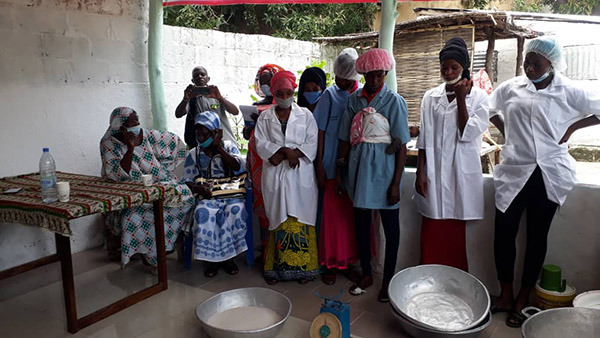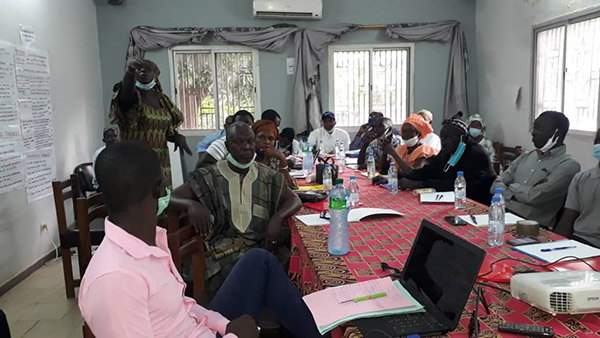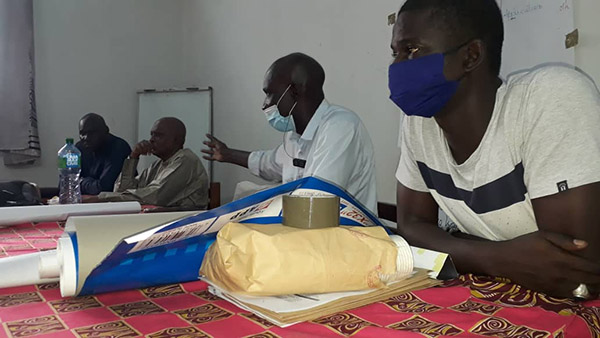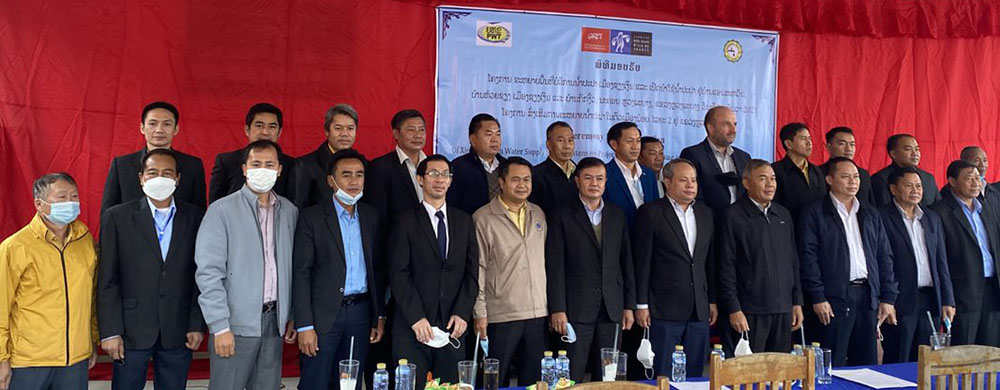Conducted in the Kolda and Sédhiou regions in Senegal since 2017 and funded thanks to support from the European Union and LuxDev, the Professional qualification for youth employment (QualEmploi) project has been supporting vulnerable young people and the master tradespeople they are apprenticed to, in a process of vocational training through apprenticeship in agriculture-related trades. In 2020, a literacy training course was added to this process, strengthening and standardising the approach by involving all parties: trainers, master tradespeople and young apprentices.
Implemented by a consortium made up of GRET, Enda Graf Sahel and Fodde, the QualEmploi project is focusing on the training and certification of 600 vulnerable young people in agriculture-related trades. It is supporting strengthening the pedagogical, technical and technological capacities of 120 master tradespeople and consolidation of a dual apprenticeship system geared towards trades in irrigation; photovoltaic; tool manufacturing; driving and maintenance of agricultural vehicles; and processing of cereals, fruit, vegetables and leguminous plants.

An innovative training approach
The option of vocational training through dual apprenticeship is innovative in itself in the context of vocational training in Senegal. It has been supplemented by the introduction of literacy training for trades. Master tradespeople and trainers from vocational training centres are now joined by literacy trainers. These three-person teams received specific training in literacy, thanks to support from the Technical vocational training financing fund (3FPT) and the Chamber of trades in Kolda.
According to a literacy trainer in Driving and Maintenance of agricultural vehicles, “this type of training is unprecedented because it provides a solution to the problems of literacy. As trainers, although we are lucky to have participated in a large number of programmes, none involved us so closely in the process, especially with the development of a joint pedagogical factsheet (enabling apprenticeships to be prepared in advance). This training will enable us to strengthen our skills beyond literacy.”

Development of standardised pedagogical tools
The first training of this type was held in Kolda at the beginning of September. It enabled redefinition of the role of literacy training in the training system, strengthening of the three-person training teams via a literacy didactic method closely linked to the trades, stabilisation of a pedagogical factsheet and production of lexical factsheets in Pulaar, containing all the main pedagogical and technical concepts related to the trades.
Combining classroom training and experimentation in workshops, strengthening of integrated literacy capacities was greatly appreciated by participants, and by vocational training bodies in Senegal. According to Assane Gueye, chairperson of the Chamber of trades: “Given the difficulties faced by the trades sector, this type of training is very helpful. It can create formalised training centres with standardised apprenticeship procedures. And strengthening master tradespeople in the national language ensures a higher level of professionalisation in the sector.”

The first stage of this trade-linked literacy training is now underway. Benefitting from co-constructed pedagogical tools and involvement of the vocational training sector in Senegal, the training team members can now provide their experience to young apprentices in order to sustainably improve the quality of training and access to employment in Senegal.
This publication was produced with the support of the European Union and LuxDev. Its content is the sole responsibility of GRET and can in no way be considered to reflect the views of its financial partners.




